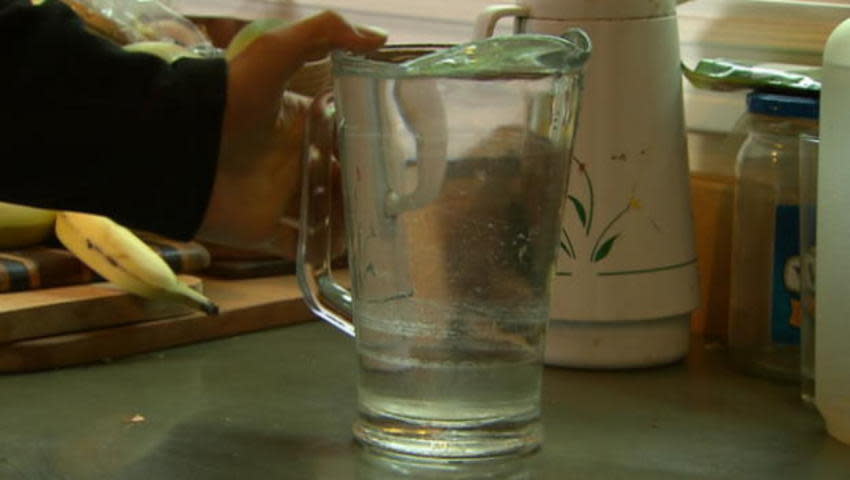 Daily Brew
Daily BrewBottled-water giant Nestlé in showdown with Ontario conservation group over water use

It's going to sound like I'm siding with a big, rich multinational corporation here, but I'm having trouble with the rage being directed at Nestlé Waters Canada.
CBC News reports the Canadian subsidiary of the Swiss-based food giant is battling critics in Ontario over the provincial environment ministry's decision not to impose mandatory water-use reductions at its Hillsburgh bottled-water operation in times of drought.
A local conservation group, Wellington Water Watchers, and the nationalist Council of Canadians have appealed the decision and begun a public lobbying campaign to change the government's mind.
According to CBC News, the ministry had initially imposed the new mandatory water reductions as a requirement in renewing Nestlé's permit to draw water via a well from a local aquifer that serves the Guelph area.
[ Related: Groups want cap on Nestlé's water permit during droughts ]
Nestlé would have been the only permit-holder in the watershed to have such conditions, CBC News noted. Other water users, from homes to area farms and other businesses, would be subject only to voluntary water reductions of 10 to 20 per cent, as Nestlé had been previously.
The local water authority has said Nestlé has always complied with the voluntary regime. In a statement sent to the industry web site BeverageDaily.com, the company said it voluntarily reduced its water usage on three occasions when droughts were declared in 2007 and 2012.
The company appealed the mandatory conditions to the Ontario Environmental Review Tribunal.
"It's a matter of principle. Why should Nestlé Waters Canada be held to a different standard than every other water taker?" John Challinor, Nestlé director of corporate affairs told CBC News.
But before the tribunal ruled on the issue, the ministry removed the conditions after talks with the company.
The government's turnaround angered Water Watchers and the Council of Canadians, who've launched their own appeal before the tribunal demanding the ministry stick to its original position in order to protect the local watershed.
"We really have to start looking at how we're abusing this resource which is a public trust," Water Watchers chairman Mike Nagy told CBC News.
According to Water Watchers, Nestlé's permit would allow it to take up to 3.6 million litres per day from the Grand River watershed, which Nagy argued is far too much.
“In our Grand River watershed, we are much more dependent on groundwater for our source of drinking water than most other places in Ontario, maybe most other places in Canada, with the exception of Prince Edward Island,” Water Watches board member Andre Hueniken said on the group's web site.
Nagy said the company should be restricted to a maximum of 1.6 million litres per day, the same as in 2010.
“And then it should be reduced by at least 1.56 percent per year after that, consistent with Ontario’s initiatives on sustainable water use.”
Maude Barlow, chairwoman of the Council of Canadians, called it a David-and-Goliath battle, putting local conservationists against a rich multinational, the largest bottled-water company in the world.
"In many ways, this effort to protect an important aquifer in a small Ontario community is a microcosm of the global fight against corporate ownership of water," Barlow said on the council's web site. "There is a growing global movement to declare water as part of the commons; a shared public resource that belongs to all."
[ Related: Canada quietly pulls out of UN convention to combat drought, desertification ]
The fight against Nestlé seems to me to be as much about the idea of bottled water as it does the company's huge draw on an important water source.
“Not only is the price of water-taking set by the ministry astonishingly low – a minuscule $3.71 for each million litres – but taxpayers must pay the price of dealing with a huge recycling and waste issue for the tens of millions of plastic bottles used annually by Nestlé to sell water,” Nagy said on Water Watchers' web site.
If Nestlé must operate in the area, the group said it should be putting the water in deposit-bearing glass bottles and be restricted from selling the product outside the Grand River watershed.
This seems to boil down to a matter of fairness. Local officials say Nestlé is a good corporate citizen that has voluntarily complied with water restrictions in the past. If there are to be mandatory restrictions to protect the watershed, shouldn't they apply to everyone?


